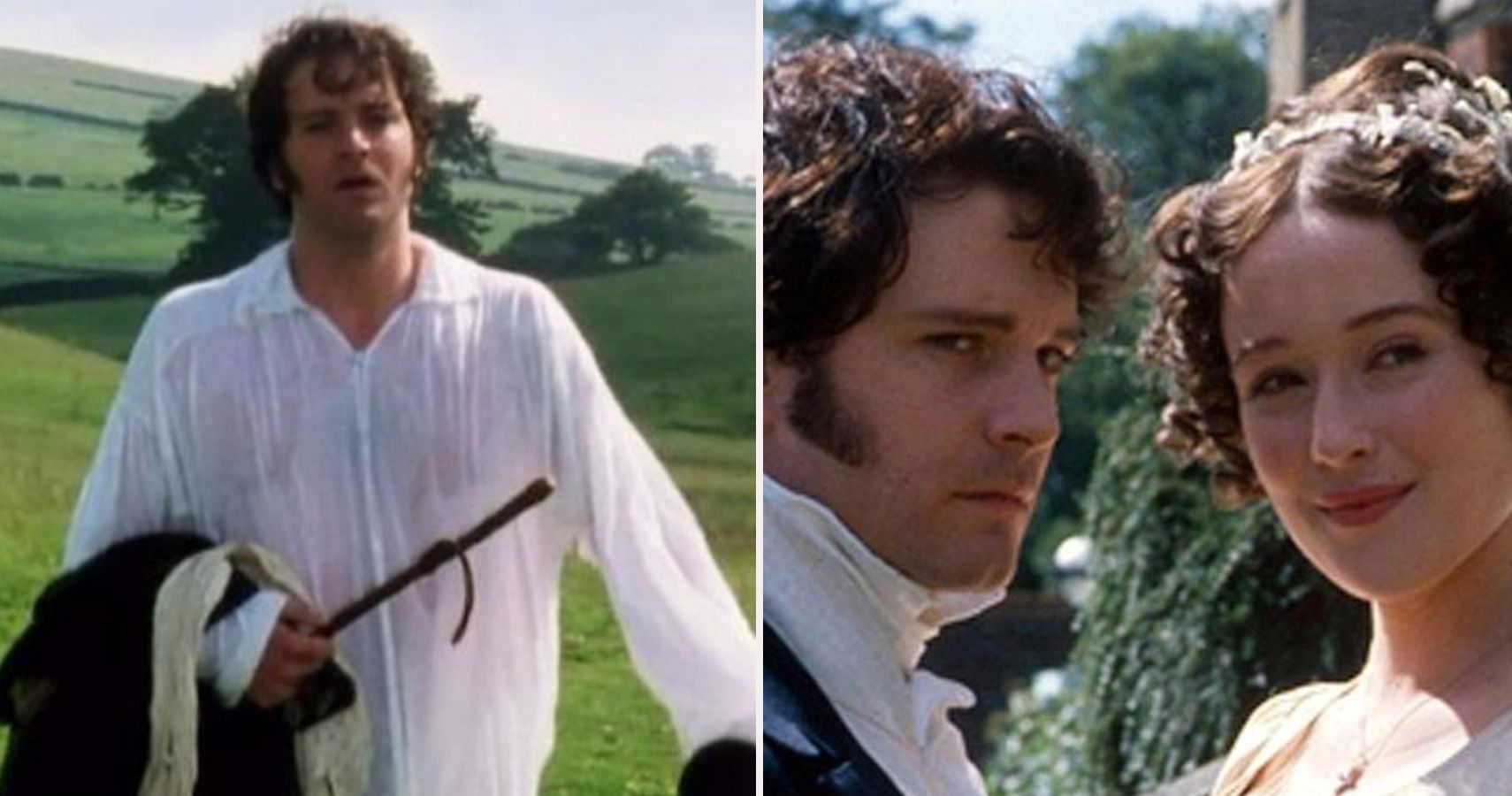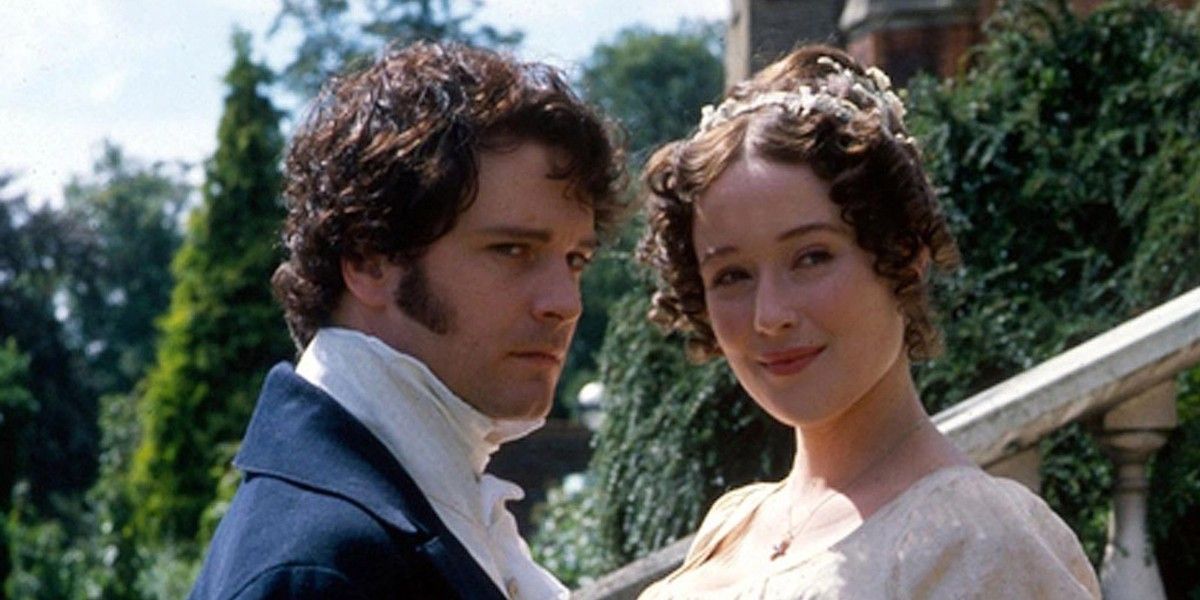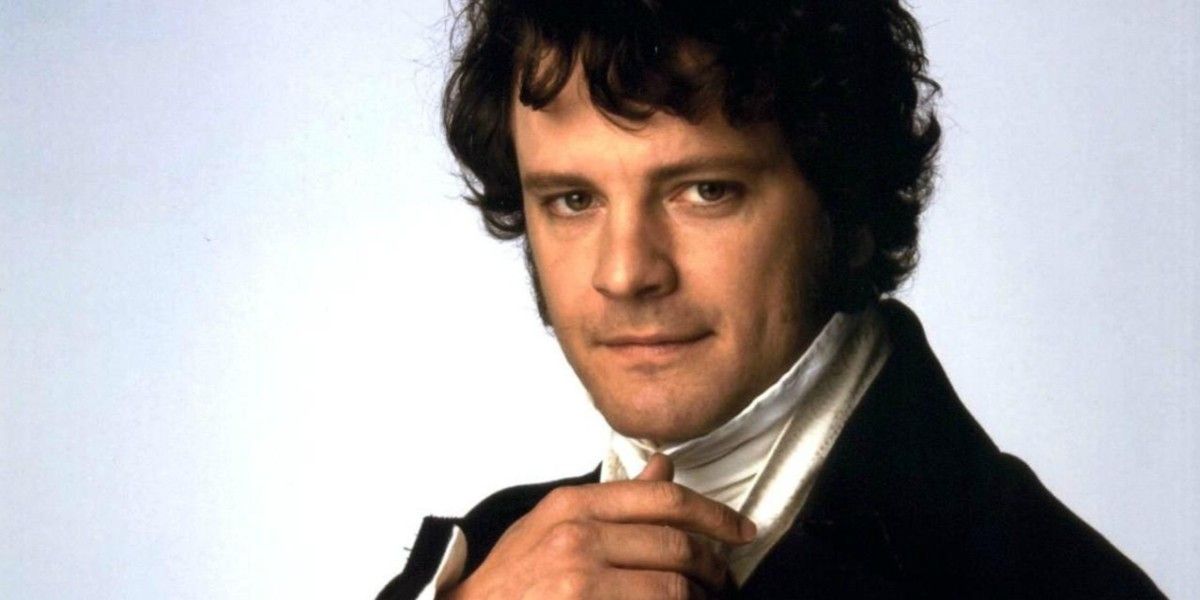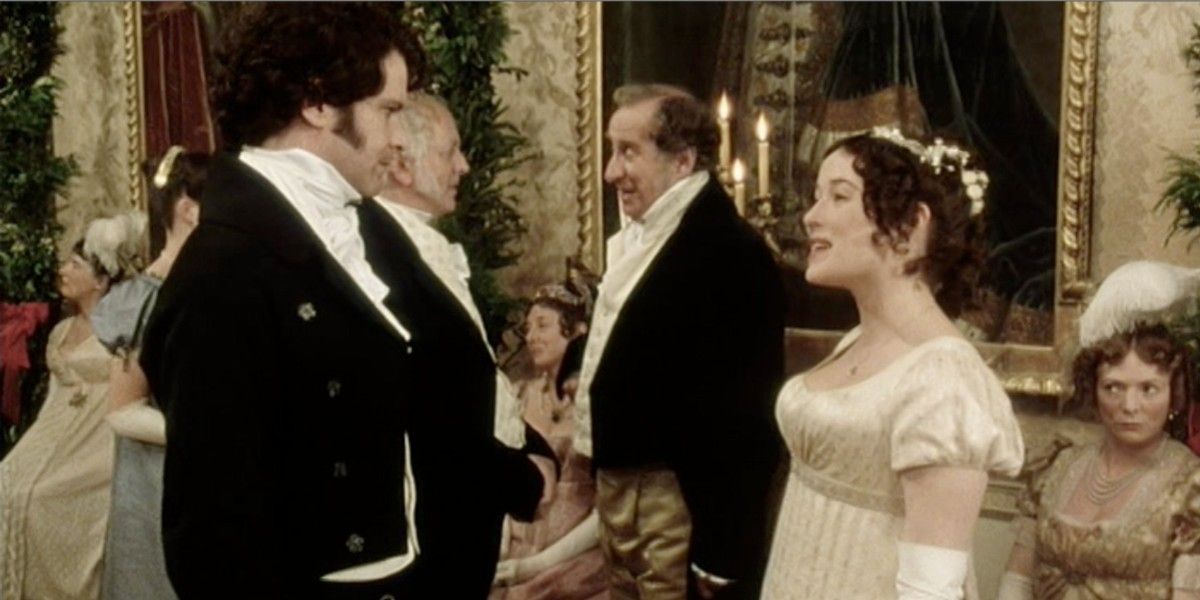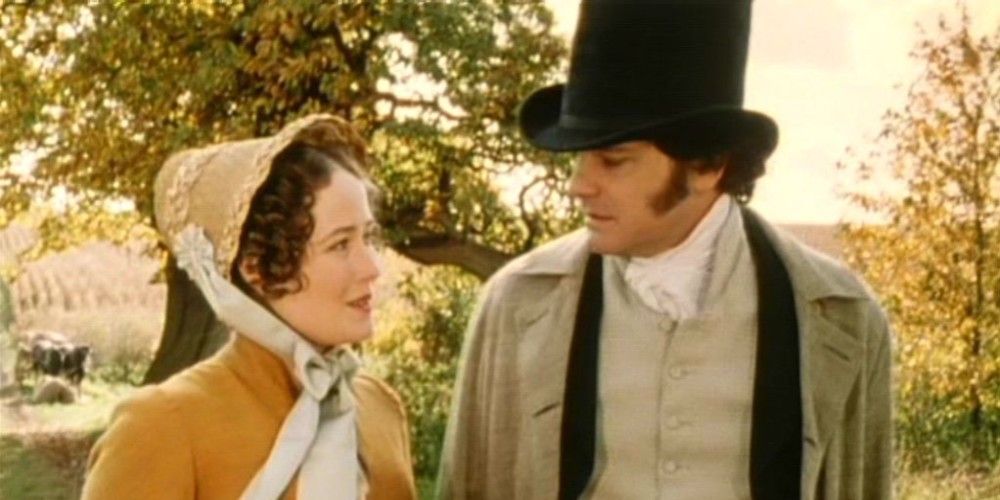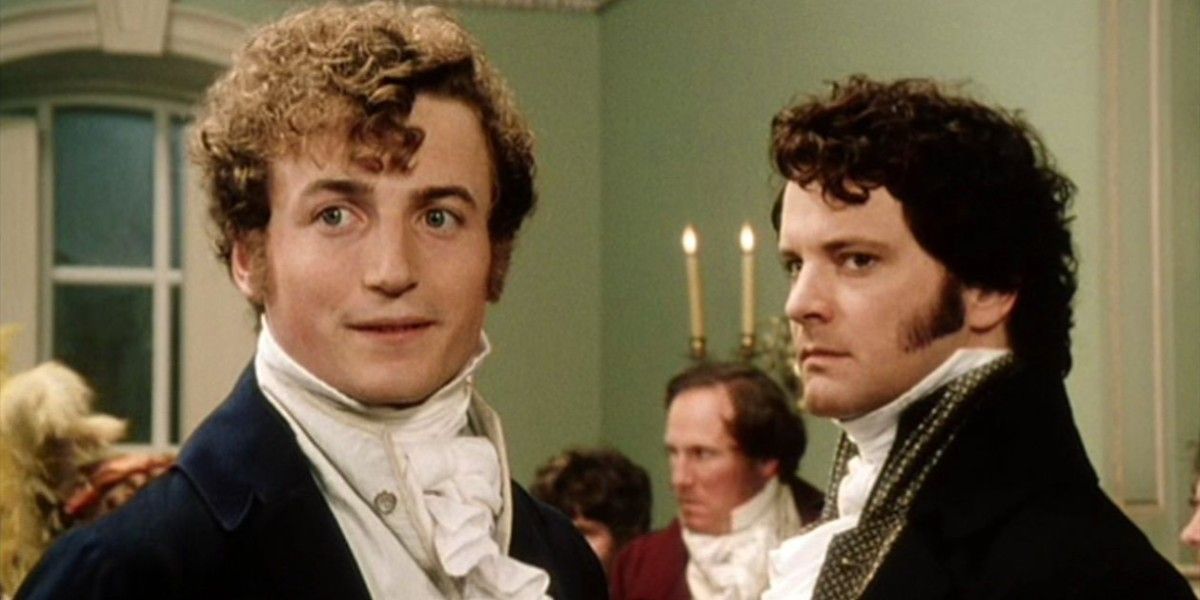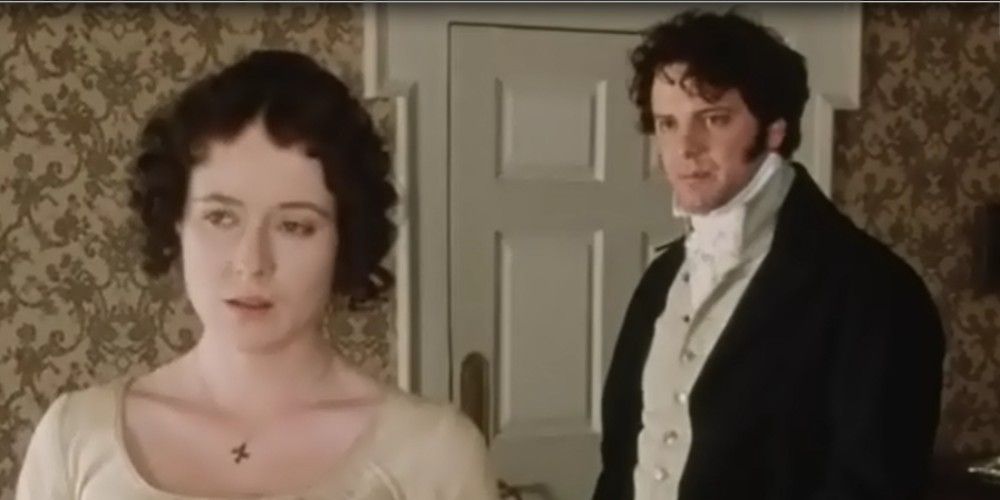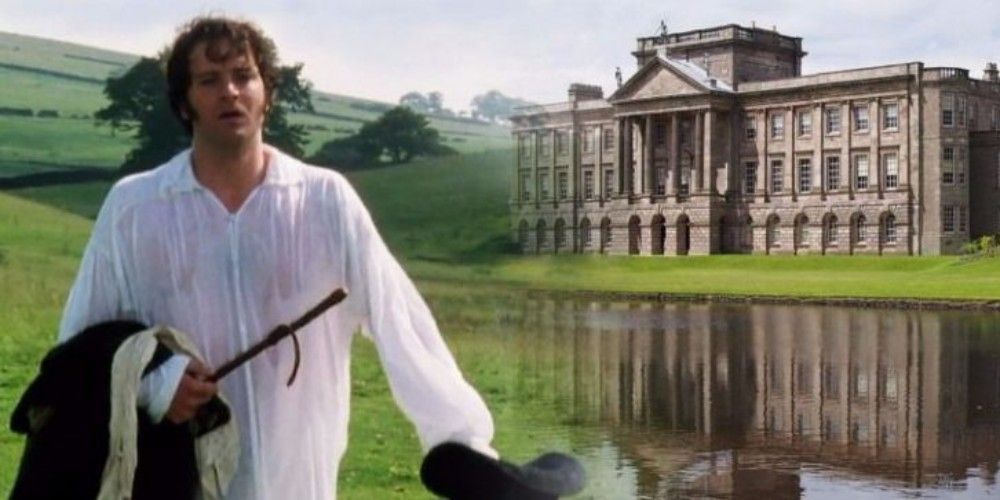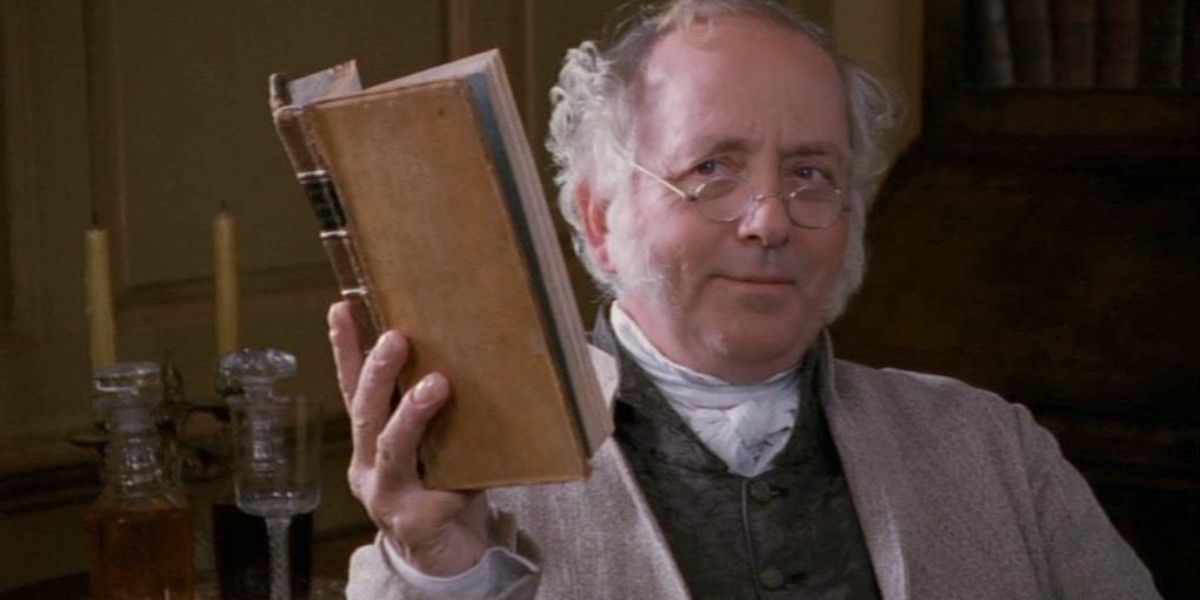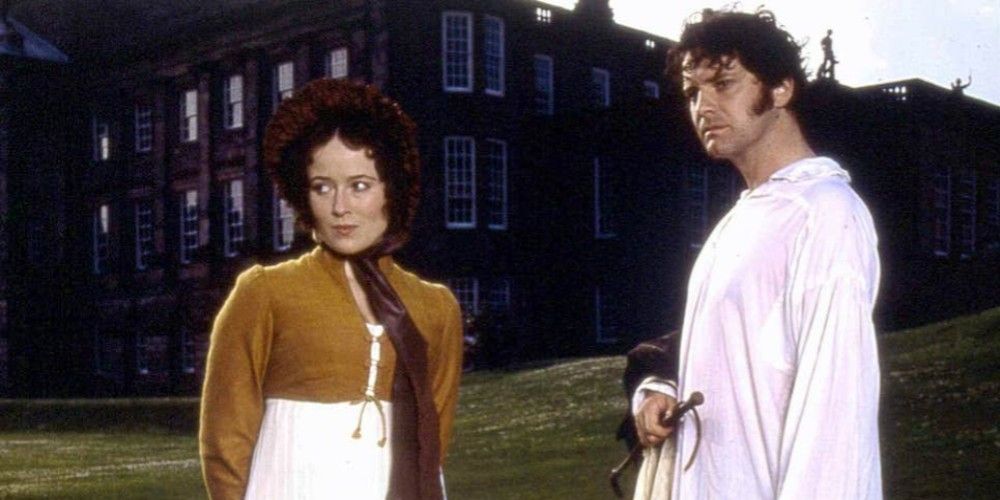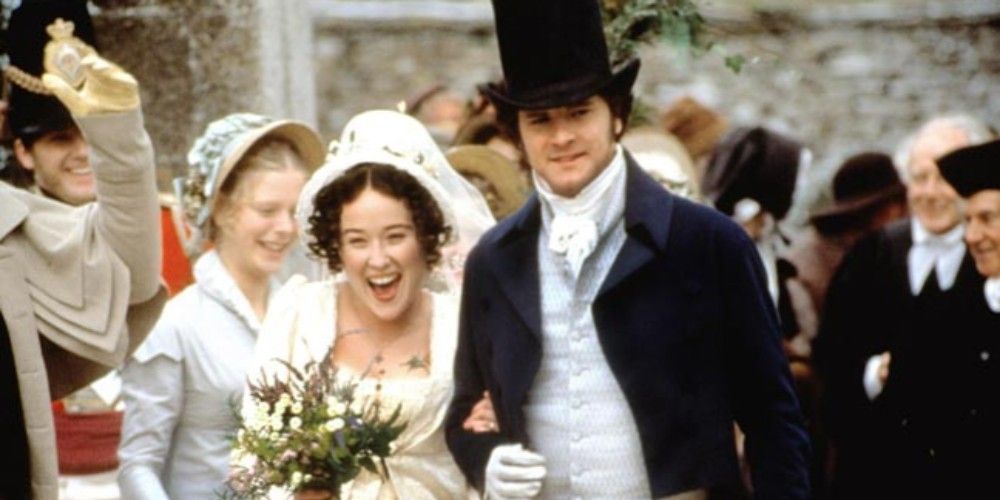Taking Jane Austen's acclaimed novel out of the studio and into the countryside was one of the best things the 1995 BBC version of Pride and Prejudice could have ever done. It took what could have been a stuffy and dull filmed stage play and infused it with the cheeriness of England's countryside. Cramped drawing rooms were exchanged for wide-open spaces, and the sense of movement from the mini-series transported viewers to the world inhabited by Mr. Darcy and Elizabeth Bennet, one of literature's most enduring romantic duos.
While it isn't a purely faithful adaptation of Austen's social commentary, it captures the spirit of it, and the creative liberties it takes are necessary to make the characters and the world they inhabit seem believable and lived in. It remains an enduring classic (not even eclipsed by the 2005 film version starring Keira Knightley and Matthew MacFayden) because of its youthful vigor and obvious love of its source material. Below you'll find 10 ways in which the BBC version differs from the book, which if you ask us, only makes it better.
DARCY PLAYS A MUCH LARGER ROLE
Pride & Prejudice the book is principally about Elizabeth, and the trials and tribulations she faces as she makes her way through English society during the Regency Era. The 1995 BBC adaptation was about Elizabeth and Mr. Darcy, with a large focus on their interpersonal relationship.
In the book, Darcy is utilized as a plot device to drive Elizabeth's narrative. He's barely even given a physical description! The Darcy of the BBC mini-series is seen participating in his hobbies (shooting, riding, fishing), as well as daily rituals, giving him a much richer part to play. We get to see and hear much more of his perspective.
THE AUDIENCE MEETS DARCY BEFORE ELIZABETH DOES
Because Jane Austen didn't make Darcy a prominent part of her story until he meets Elizabeth, readers spend a great deal of time getting to know Elizabeth as a character, including her family history, her personality, and her hopes and desires for marriage long before she finds love.
In the BBC version, we see Darcy before he meets Elizabeth, and get to know him. He therefore isn't defined by his association with her, and serves as more than just a plot device. It's why the audience can root for him to win Elizabeth over in the end.
THE MERYTON ASSEMBLY IS GREATLY EXPANDED
One of the most pivotal moments in the novel ironically only receives about three pages of attention, with a smattering of dialogue; the Meryton Assembly. This is the first social gathering where Elizabeth and Mr. Darcy meet, starting off the whole chain of events pertaining to their burgeoning relationship.
The BBC adaptation greatly expands this scene, going into detail about not just Elizabeth and Darcy's personalities and attitudes, but all the other characters gathered as well. Dialogue is included that was never written into the novel, which helps viewers get an idea of how people behaved at social functions in the time period.
WHAT WAS DETAILED IN LETTERS WAS ACTUALLY SHOWN
Much of Austen's novel is thought to be based on exchanges between herself and various friends, which shows just how important letters were in communicating societal doctrines at the time it was written. Austen features characters writing a great many letters in her book, which needed to be adapted for the mini-series in a more accessible way.
Given the visual storytelling of the film, much of what was described in the letters needed to be shown on screen. Therefore, there are many added scenes involving flashbacks, such as Mr. Darcy at college, or early interactions with Mr. Wickham, that were never elaborated on in the book.
DIFFERENT CHARACTERS WERE GIVEN EACH OTHER'S DIALOGUE
In order to illustrate a complex interconnected relationship between the main and supporting cast of characters, the BBC adaptation often had to develop dialogue for characters that were similar to what they might have said but was never spoken in Austen's novel.
Some lines of dialogue, such as Mrs. Bennet wishing she had sons, was made up for the mini-series. But other pieces of dialogue, that might have been spoken by one character, was given to another character, to give them more prominence in the narrative, or drive the plot forward.
DARCY LEARNS HIS LESSON
Due to the willingness of Colin Firth to fully inhabit the Darcy character and bring a lot of nuance into his actions, viewers get to see the subtle changes that he goes through over the course of the six-hour running time. Mr. Darcy is meant, in the book, to learn a lesson about social snobbery and superficiality.
What isn't so clear in the book, is whether or not he actually learns that lesson. Just marrying Elizabeth isn't enough to dispel his belief system. The mini-series actually shows him going from an aloof, arrogant, condescending man into someone with a moral conscience and true empathy.
THE LAKE SCENE
The BBC version was meant to breathe life into the pages of Austen's novel, taking it from a stuffy, dry period drama and turning it into a vibrant film with modern energy. In many ways, the producers and writers wanted to "sex it up" a little bit and focus on the vigor and vitality of the leads.
One of the ways they did this was to write a scene that never happened in the book but should have. After a long day of riding to Pemberley, Darcy arrives at his manor and decides to dive into the lake. Elizabeth arrives at that exact moment to see him soaking wet, in the midst of casting off his social aspersions and responsibilities, and finds him scintillating despite herself. It was one of the most sensational moments in British TV.
ELIZABETH TELLS HER FATHER WHAT DARCY DID FOR LYDIA
In the book as well as in the BBC version, when Lydia runs away with Mr. Wickham, it causes an enormous scandal. Mr. Bennet is forced to essentially pay Wickham a certain amount of money so that the pair can afford to live above Wickham's pay as a soldier, essentially paying Wickham to stay in the marriage and not leave her divorced and shamed.
Darcy, in the spirit of being a true gentleman, ends up paying Wickham off, unbeknownst to Mr. Bennet. Elizabeth also doesn't learn of his role in the tumult until later on, when she recognizes him for his generosity and compassion. In the BBC version, Elizabeth tells her father what Darcy did to help them.
THERE WAS MORE CHARACTER DEVELOPMENT
Due to its length as a mini-series, the BBC version could get away with documenting all of the necessary portions of Jane Austen's book as well as adding some scenes, which served to provide more character development. It takes a long time for Elizabeth and Darcy to become friendly towards one another, and in turn, it makes their change of opinion more believable later.
Minor characters are also given more prominence, as Elizabeth has more interactions with her father, mother, and sisters, as well as with her good friend, Charlotte. They're given more dialogue and more activities to participate than in the book, which helps to make them seem more like real people.
DARCY AND ELIZABETH'S WEDDING
The bulk of the book, as in the case of the BBC adaptation, revolves around Elizabeth and Darcy meeting, falling in love, and finally getting engaged despite all of society's obstacles. The wedding is never described, but there's a lot of information about Darcy and Elizabeth's life during their engagement.
In Austen's novel, she describes in part the feelings that Elizabeth had in the true nature of a "fairytale ending", where her life turned out to be as bucolic as she desired, and she ruminates on the good fortune of being able to marry for love instead of social standing.

